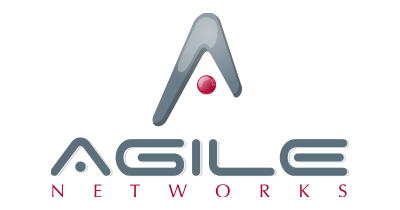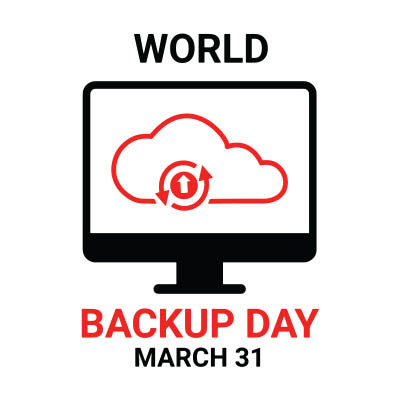Agile Networks Blog
There are two types of digital transformation. There’s the kind that streamlines a business into a powerhouse, and there’s the kind that turns into a ghost ship; perfectly automated, technically efficient, and completely devoid of life. Right now, we are witnessing a massive shift in the way people do things. While your competitors are busy bragging about replacing their support staff with agentic AI, what they are often doing is building a wall between themselves and their customers.
We’re sure at some point you’ve used the idiom, “If it ain’t broke, don’t fix it,” particularly in regards to your IT. While it might feel responsible and safe to stick to this motto as much as possible, there will come a time when it becomes dangerous to hold fast to it. In fact, business technology professionals might even call this motto irresponsible. Here’s why.
Starting a business requires a certain mindset, one that demands a certain disdain for failure. This entrepreneurial mindset might actually hold you back from seeing success with your business’ technology, however. This month, we want to explore how the same mindset that has allowed you to build your business to where it is today is actually getting in the way of effective technology implementation, as well as what you can do about it.
It's a familiar challenge for businesses: how do you build customer loyalty and a strong user experience while also making sure that their data is protected? Sustainable success depends on mastering this delicate balance. Instead of choosing one over the other, the goal is to optimize data protection without hindering your ability to engage customers and drive growth.
While data might be the new currency, your own business’ data might be a bit too messy to make full use of. You might be paying to store it and protect it, but you’re not doing as much with your data as you’d like. Here’s how businesses find themselves with these “data graveyards” and why it essentially functions like a debt rather than an asset.
A cluttered workspace can lead to a cluttered mind. Whether you're working from home or in an office, keeping your workspace clean and organized can significantly boost your productivity, reduce stress, and even spark creativity. It's not just about aesthetics; it's about creating an environment where you can thrive.
Here are five tips to help you maintain a pristine and productive workspace:
You're in the middle of a crucial presentation, and suddenly, your screen freezes. Or perhaps your customer relationship management (CRM) system goes down during peak sales hours. Your first instinct might be to panic, to hit every button, or to call everyone you know. This month, we talk about how overreacting to your technology troubles can be just as bad as the troubles themselves.
Robust IT tools and services are no longer a luxury, but the very lifeblood for organizations of every size. They provide the essential direction, unwavering stability, and seamless connectivity required not just to survive, but truly thrive in an increasingly digital world.
That said, the questions remain: what exactly constitutes these pivotal "IT tools and services," and more importantly, why should they take a top spot on your business priorities?
Starting a small business is exciting, but keeping it running is the real challenge. Many businesses start with a great idea, a solid customer base, and high hopes, only to crash and burn because of avoidable mistakes. If you’re a small business owner or planning to become one, watch out for these three major pitfalls that can sink your business faster than you can say bankruptcy.
Today is World Backup Day, an annual reminder that losing your data is just one accidental delete, cyberattack, or spilled drink away. The idea is simple: back up your files before disaster strikes. Because trust me, nothing ruins your day faster than realizing all your work, memories, and important files have vanished.
Besides all of those people who are advocating for the scaling back or non-implementation of tools to save jobs, most people understand the benefit of automation when it makes sense. Not only do machines tend to do certain tasks more effectively, they never willingly take a day off. Unfortunately, for every task that needs to be completed less than half can be automated, and that number drops even further when you take into account everything a human does at their job. Today, there are very few jobs that can be fully automated; even as AI has begun to be used more for business. This week, we wanted to discuss why automation may not be the answer you are looking for and why training humans holds a lot of value.
Managing all the gadgets in a modern office isn’t a walk in the park. The tricky part is keeping tabs on every device, figuring out who’s using what, and noticing any trends. If you’re not already tracking your tech, now’s the time to set up a system that does just that. Using an inventory management system can make this whole process a lot smoother.
Your company’s ability to keep its digital information safe depends largely on how well its technology performs. This is why it’s crucial to teach your employees how to protect your company’s data. To start, it’s important to understand your organization’s security posture. This refers to how actively you or your team work to protect your online presence. With the growing use of cloud applications and remote work becoming more common, every employee plays a role in keeping the company secure. This month we talk a little bit about creating a security culture designed to keep your data and information systems secure.
Your business needs software, along with the various integrations it allows for to keep your operations going. A little planning goes a long way, especially if you want to get the best return on your investment. Today, we want to look at how you can find the right mix of software for your business without breaking the bank or experiencing the dreaded “tech sprawl.”
Passwords are the most important security tool used to secure digital assets. They are critical for small businesses, as weak or mishandled credentials can lead to serious security problems. Everyone must understand and follow the best practices for creating and managing passwords. This month, we will go through a few of them.
Your smartphone is probably one of the most important tools in your daily life. It helps you stay connected, entertained, and organized. But let’s be real—smartphones aren’t cheap, and replacing one every couple of years can hurt your wallet. The good news? With a little care, you can make your phone last longer. Here are five easy tips to keep your smartphone running like new.
Remote work isn’t a new strategy, but ever since the COVID-19 pandemic shut down in-office activities for all types of businesses, the amount of remote workers has grown regularly. In 2024, nearly 22 million workers would be considered fully remote, with over twice that amount working a hybrid schedule where they are remote at least one day per work week. This shift in the way that people work has required some adjustments, and this month, we wanted to take a closer look at the employees’ side of the “new normal”
Mind you, this won’t be a comprehensive list of issues that remote workers are dealing with, but we will try to go through some of the challenges and benefits that people deal with when they work remotely.
Customer Login
News & Updates
Contact Us
Learn more about what Agile Networks can do for your business.
Agile Networks
705B Moore Industrial Park
Prospect Park, Pennsylvania 19076



















